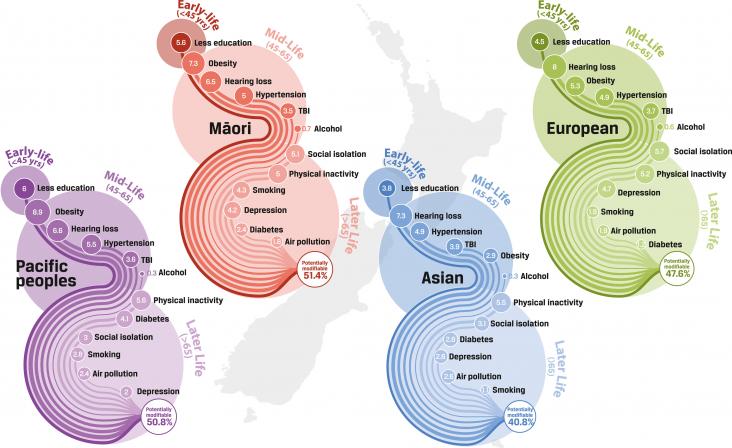
This study supports SDG 3 and 10 by showing that the risk of dementia and the modifiable risk factors for dementia vary substantially among the different ethnic groups in New Zealand (European, Māori, Asian, and Pacific people), indicating that dementia prevention efforts should be tailored to each ethnic group, to account for these differences.
This Viewpoint describes a feminist intersectionality framework to tackle digital health's gender inequities and provide recommendations for future research.
This study ties to all of the goals affected by climate change and health, including Goals 2, 3, 6, 7, 10, 11, 12, and 13, by investigating which methods by advocates work best to garner support for effective actions on climate change.
Sea level rise (SLR) has and will continue to impact coastal communities in the coming decades. Despite the widespread availability of data on SLR projections, little is known about the differential impact of SLR on minority or economically disadvantaged populations. In this study, we aim to identify the geographic areas in which low-income and communities of color along the North and South Carolina coastline in the United States will experience the most severe effects of SLR.
Development COVID-19 vaccines in a record time has been an unprecedented global scientific achievement.
The authors evaluated the quality and outcomes of in-hospital ACS management for White patients vs patients of colour, within a universal healthcare context.
Objective: Smoking is an important causative factor of chronic obstructive pulmonary disease (COPD), and females are considered more susceptible to the effects of smoking than males.

Background: The coronavirus pandemic (COVID-19) has a social and psychological impact among healthcare workers worldwide and appropriate coping strategies are essential to avoid the negative mental he

The Loring Airforce Base (AFB) in Aroostook County, Maine, USA was active from 1947 through 1994. Like many military sites, it has a substantial history of pollution from a wide variety of toxins. Currently, some of the AFB land belongs to the Micmac Nation, an Indigenous tribe, who are very concerned about the contamination on the land. Starting in 2019, a group of community activists, research scientists, and tribal members came together to test methods for cleaning the land. This backstory features perspectives from six project participants.
The results suggest that the ongoing pandemic has led to the rise of common mental health problems among indigenous people during the pandemic. The results can contribute to the formation of mental health policy for indigenous people and the development of suitable mental health intervention strategies especially during and after the COVID-19 pandemic.
